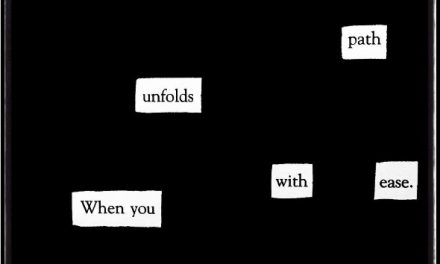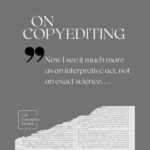Our regular blog-readers (whom we casually yet affectionately refer to as bloggulers) are already familiar with Don Peteroy’s recurring feature, in which our volunteer-cum-inquisitor poses a single, and singular, question to a hapless group of innocent wordsmiths of his choosing. (He likes them—a lot—though sometimes it’s hard to tell.) Don is also a musician, a fictionist, and he takes a whole lot of vitamin E for reasons unknown to the rest of us (probably to give people the impression that he’s healthy when, actually, his diet consists of blue Jello sprinkled with either Corn Nuts or black olives—depending on his mood). Anyway, this time around, Don takes his questions—and his choice of “writers”—to a cosmic level. We casually yet affectionately refer to it as the “Whoa, dude” level. As for Don, we refer to him as Jasper. (We like to keep him guessing.)
 Adrian Matejka is the author of The Devil’s Garden (Alice James Books, 2003), Mixology (Penguin USA, 2009), and The Big Smoke (Penguin USA, forthcoming 2013). He teaches at Southern Illinois University–Edwardsville, where he serves as Poetry Editor for Sou’wester and as Co-Director of the River Styx at Duff’s Reading Series. You can find him at www.adrianmatejka.com or on Twitter: @adrian_matejka.
Adrian Matejka is the author of The Devil’s Garden (Alice James Books, 2003), Mixology (Penguin USA, 2009), and The Big Smoke (Penguin USA, forthcoming 2013). He teaches at Southern Illinois University–Edwardsville, where he serves as Poetry Editor for Sou’wester and as Co-Director of the River Styx at Duff’s Reading Series. You can find him at www.adrianmatejka.com or on Twitter: @adrian_matejka.
Question: At a reading you gave in Louisville, you mentioned that at one time, you were a huge R.E.M. fan. I was too. Like many long-term R.E.M fans, I’ve often wished that they’d return to their old sound, the beautiful music they made between 1982 and 1989. Let’s imagine that we can alter history. Let’s say that a new old REM album could suddenly appear. Let’s put it between Life’s Rich Pageant and Document. It’d be full of great songs. There’s a cost, however. You will have to give up your favorite poem; that is, erase it from existence. Would you be willing to do this, and why/why not? Screw it, let’s keep this going. I know you like funkadelic. How about we add another twenty minutes to Hazel’s solo in “Maggot Brain” for your next five poems? How about we give Public Enemy another album, between It Takes a Nation . . . and Fear of a Black Planet at the cost of every poem you’ve written in the last two years.
AM:It’s great that you asked about R.E.M. because I was just reading an interview with Michael Stipe this past weekend. In response to a question related to what he would miss about performing live, Stipe said: “I have to give everything I have for every song or I’m just that sad guy that’s in his 40s and holding onto some teenage dream. We didn’t move through the last decade with that feeling at all. I gave everything I had.”
I think there is a direct connection between my drive to write poems and my own “youthful dream” of leading the Africa 70 or spitting rhymes over a 9th Wonder beat. The drive could just be a function of having failed as a musician, but I’d like to think it’s also part of the mechanism we employ as writers of poetry. As Ezra Pound wrote, “Poetry begins to atrophy when it gets too far from music.”
Or maybe the “teenage dream” is really about audience or artistic relevance or social impact. I mean, music is the universal and can made with an ear toward a community of listeners that has the potential to be very large. It is a social construct as well as an artistic one. Especially now, with so many avenues for musical networking and the shift in the ways music is distributed.
The thing is, poetry doesn’t have the same kind of social permission or potential universality as music. Partially because of its self-referential nature, poetry is written with an ear toward an already-established (and very small) audience. But even with that limited audience, poetry is the closest thing to music we can make with our words, and it can alter the way a listener/reader interacts with the world.
I’m thinking of how Pablo Neruda’s Love Poems reify our perception of what “love” is. Or the way Allen Ginsberg’s “Howl” and Amiri Baraka’s “Black Art” cause us to reevaluate the intersections of poetry and politics. Or how Gwendolyn Brooks’ poem “the mother” works in a space that was so ahead of its time that the always-incendiary Richard Wright suggested she take the poem out of A Street in Bronzeville.
I doubt anyone has this kind of life-altering experience reading or hearing my poems, but I know people have been changed by R.E.M.’s “Radio Free Europe.” So no question, I’d go for the transformative and trade poems for another R.E.M. album. Not only that, but I’d feel like the Yankees swapping cash for Babe Ruth when I did it. Now that I’m thinking about it, I’d like to see somebody write a book of poems that’s the equivalent of this lost R.E.M. album. I don’t have the chops to do it, but I bet someone else could.
 Greg Benjamin lives in Ohio with his wife and children. He has written a critical line of business software for the medical, financial and public industries. He’s written seven novellas in invisible ink. He is writing next-generation mobile applications software for his start-up, Fourth Landing. He ‘s always available for lease and can often be found maundering near local airports and museums.
Greg Benjamin lives in Ohio with his wife and children. He has written a critical line of business software for the medical, financial and public industries. He’s written seven novellas in invisible ink. He is writing next-generation mobile applications software for his start-up, Fourth Landing. He ‘s always available for lease and can often be found maundering near local airports and museums.
*Interviewer’s note: You might be scratching your head right now, wondering what, exactly, Mr. Benjamin has published. The fact is, Mr. Benjamin hasn’t published a thing, and he has no interest in writing fiction or poetry. He writes code. He’s proficient in many computer languages. Does that qualify him as “a writer”? I’m inclined to say yes.
In 1997, when I wanted to be a poet, a friend loaned me a poetry collection by Jackson Mac Low. Mac Low used “non-intentional” composition methods to construct him poems: random number generators, computers, algorithms, and so on. The poems were beautiful. Check him out: http://epc.buffalo.edu/authors/maclow/
Here’s the question: Can something be considered “art” if it’s essentially machine gibberish? Better yet, does something cease to be “art” when it serves a practical purpose (like Mr. Benjamin’s computer code compositions)?
My answer: code is art.
Question: Why do you eat things?
GB: I have no idea what the hell that means. Right now, as I sit here in front of an LED screen, debating the effect of crossing parallel polarizers—which, of course, are oxyrepublican lunch boxes of ionic compounds and double refraction properties—it occurs to me that the sitcom pilot always crashes and burns upon departure.
I could get into a fist fight at a local bar, have my face bashed in, my lungs collapsed, and my spinal cord contorted just enough so that I can be intravenously fed the delectable goodness of the finest university hospital. But I’ll do nothing of the sort. Speaking of sorting, there’s a certain melancholic sway that comes with each beating compression of a keyboard. I liken it to the comfortable uneasiness you get when returning to your desk after your car stalls in the ladies restroom and you tap out your pass phrase only to realize a second too late that you did not scrub your paws with the office hand sanitizer and your fingerprints recede into seclusion and your skin takes on the grainy white reflection of southern Kentucky mash, and right there you have it: without eating things, I’d have nothing in my stomach. I write 479,133 lines of zero’s and one’s when 11 lines will do the trick. I’m saving the world, one keystroke at a time.










